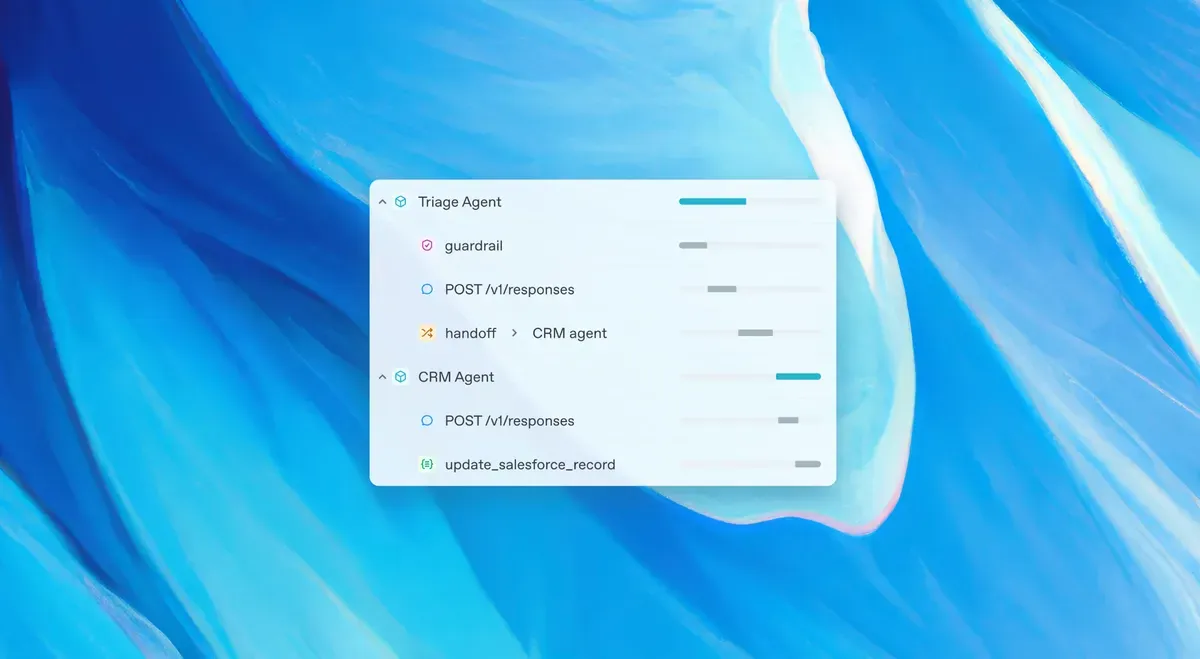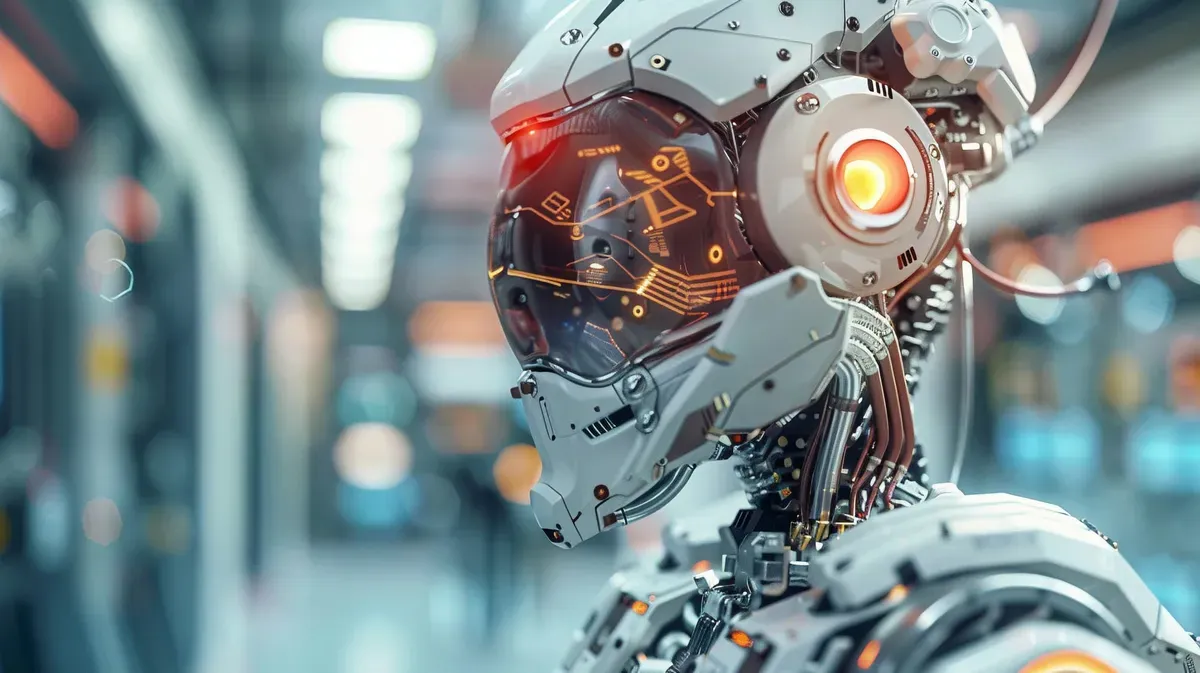Good Morning from San Francisco,
OpenAI just dropped a bombshell in the AI agent race. 🎯 Their new Responses API lets developers build AI assistants that surf the web, dig through files, and handle tedious computer tasks. Think of it as a digital workforce you can deploy with a few lines of code. 🤖
The pricing? Web searches will cost you a coffee per thousand queries. File searches and computer tasks run cheaper than your monthly streaming subscription. They even threw in a free gigabyte of storage – how thoughtful. 💰
This move puts dozens of Silicon Valley startups in an awkward spot. Many raised millions to build specialized AI agents. Now they're competing with tech giants who offer similar features out of the box. 🎭
Some startups pivot. Others dig deeper into niche markets. The rest? They might end up as footnotes in Silicon Valley's history. ⚡
Stay curious,
Marcus Schuler

OpenAI Unleashes DIY Agent Building Tools
OpenAI just made it easier for developers to create their own AI agents. The company launched its Responses API, letting developers build AI assistants that can search the web, dig through files, and take over mundane computer tasks.
The new API comes with pre-built tools that pack a punch. A web search function taps into the same technology powering ChatGPT. A file search tool helps agents sift through mountains of documents faster than a caffeinated intern. And a computer-use feature lets AI handle those mind-numbing tasks we all love to hate.
OpenAI also dropped an Agents SDK, which works like a traffic controller for multiple AI agents. It helps developers orchestrate their digital workforce without breaking a sweat. The SDK plays nice with other companies' models too – as long as they speak the right language.
The pricing structure keeps things interesting. Web searches start at $25-30 per thousand queries, file searches cost $2.50 per thousand lookups, and the computer-use tool runs at $3-12 per million tokens. The first gigabyte of storage comes free – how generous.
Why this matters:
- Developers can now build custom AI agents as easily as ordering takeout
- OpenAI just turned the AI agent race into a democratized sprint, and everyone's invited to run
Read on, my dear:
- OpenAI: New tools for building agents

The Rise of AI Agents and What It Means for Silicon Valley
🤖 Startups Scramble as Digital Workers Clock In 💼
AI agents have crashed the tech party. These digital workers perceive their environment, make decisions, and execute tasks without human babysitting.
They excel at mundane tasks humans avoid: searching databases, scheduling meetings, and drafting emails. Some can code, analyze spreadsheets, or navigate web interfaces. The most advanced ones chain multiple steps together to solve complex problems.
Their popularity exploded when ChatGPT demonstrated AI could handle conversations without making users speak in programming tongues. Suddenly, interacting with AI felt natural. Tech companies raced to develop agents that could take action beyond just chat.
OpenAI's Responses API allows AI agents to search the web, retrieve documents, and integrate into workflows. It transforms vague requests into concrete actions, sparing humans the tedium of digging through digital haystacks.
Anthropic's Claude takes AI autonomy further with "computer use." It types, browses, and completes digital tasks with minimal supervision—like an intern who never needs coffee breaks or existential pep talks.
This surge creates an awkward situation for dozens of Silicon Valley startups. Many raised millions to build specialized AI agents for specific tasks: email management, meeting summaries, customer service, and sales outreach.
These startups now face tech giants offering similar capabilities as features rather than standalone products. Their specialized agents must prove they deliver unique value that generalist AIs can't match.
Some startups like Puzzle and Speak integrate OpenAI's technology to enhance their offerings rather than resisting the shift. Others double down on industry-specific knowledge that general AI agents lack. The less nimble ones face a classic Silicon Valley fate: acquisition or obsolescence.
Why this matters:
• AI agents transform from science fiction to practical business tools, replacing repetitive knowledge work first before eyeing more complex roles 🤖
• The winners won't fight AI giants—they'll build on their shoulders
AI Photo of the Day

Prompt:
The samourai pizza cats

Meta's DIY Chip Plan: Breaking Up With Nvidia
Meta wants to stop paying Nvidia's sky-high prices for AI chips. The social media giant has begun testing its first homegrown AI training chip with TSMC, Taiwan's semiconductor powerhouse.
The stakes couldn't be higher. Meta plans to burn through up to $65 billion on AI infrastructure by 2025. That's a lot of zeroes for a company still haunted by its previous chip-making flop. Back in 2022, Meta's first attempt at an AI chip failed so spectacularly, they crawled back to Nvidia with their wallet open.
This time feels different. Meta has already succeeded with an inference chip that helps decide which cat videos end up in your Facebook feed. The new training chip could handle the heavy lifting of teaching AI systems – starting with recommendation algorithms and eventually powering Meta's chatbots.
Meta aims to kick its Nvidia habit by 2026. The timing looks good: AI experts increasingly doubt that bigger, more expensive chips automatically mean better results. Just ask Nvidia's stock price after a small Chinese startup showed you don't need a supercomputer to build decent AI.
Why this matters:
- Meta could slash billions in AI costs – if it doesn't repeat its last chip disaster
- The AI chip war just got personal, and Nvidia's monopoly is looking shakier by the day
Read on, my dear:
- reuters: Exclusive: Meta begins testing its first in-house AI training chip
- TechCrunch: Meta is reportedly testing in-house chips for AI training

Master Your Day: The 5-Step AI Task Scheduler That Actually Works
Prompt:
Create a detailed daily schedule for the following tasks. For each task:
- Assign a priority level (High/Medium/Low)
- Estimate time required for completion
- Note any specific deadlines
- Suggest optimal time slots based on urgency
- Group related tasks together when possible
[insert tasks]
Please format the schedule in an easy-to-reference table, and afterward provide 2-3 key recommendations for how I should approach my day most efficiently.
AI & Tech News
Google Secretly Owns 14% of Anthropic
Google holds a 14% stake in AI startup Anthropic but gets surprisingly little control for its money. Court documents reveal Google invested over $3 billion in the ChatGPT competitor.
OpenAI: Model Learns to Write Like a Human, Not a Robot
OpenAI's newest model just wrote a story that doesn't read like a drunk Wikipedia entry, according to CEO Sam Altman. The AI tackles grief and memory with surprising grace, even cracking jokes about its own digital nature. "Computers don't understand idling," it quips, proving artificial intelligence might finally understand human intelligence.
Alibaba's AI Now Claims to Read Your Face – And Your Mind
Alibaba has unleashed an AI model that claims to read human emotions from video, pitting itself against OpenAI's pricier GPT-4.5 in the race for artificial emotional intelligence. The Chinese tech giant's free R1-Omni model spots whether someone looks happy or angry – though whether it can tell if you're rolling your eyes at yet another AI announcement remains to be seen.
Manus Teams Up With Alibaba to Challenge OpenAI
Manus AI just partnered with Alibaba's Qwen team to build what it claims is the world's first general AI agent, according to reports today. The startup burst onto the scene last week boasting its tech beats OpenAI's DeepResearch – though its website keeps crashing under the attention, which might explain why they need Alibaba's help.
Old Guard Stumbles as New Players Soar
Black Forest's FLUX and Google's Imagen-3 surge ahead in the image AI race while Dall-E 3 bleeds users, losing 80% of its base. Meanwhile, Anthropic's Claude elbows its way to equal footing with OpenAI in the text arena, proving that even AI empires can't rest on their laurels.
SoftBank Bets $20M on AI Video Magic
OpusClip just snagged $20 million from SoftBank to let anyone create viral videos with a few keystrokes, according to Business Insider. The San Francisco startup's AI analyzes social media trends, picks the juiciest clips, and stitches them together – saving creators from actually learning how to edit, which apparently is so 2023.
Three Seconds to Sound Like You
Cartesia's new Sonic 2.0 AI needs just three seconds to become your vocal doppelganger, raising the stakes in its $64M battle against ElevenLabs. The company's Turbo version blazes through text at 40ms while nailing those tricky names and addresses, making human testers 50% more likely to mistake it for the real deal.
Saudi-Owned Scopely Snaps Up Niantic's Hit Games
Niantic Labs just sold its gaming division – including the mega-hit Pokémon Go – to Saudi-owned Scopely for $3.5 billion, according to reports today. The company that got millions of people to chase virtual monsters outdoors failed to catch lightning twice, despite launching games with Monster Hunter and Pikmin brands.

AI Decoded 🔓: Master Prompting
🎯 The 5 Prompt Principles that Actually Work:
- The "No Politeness" Trick: Drop the pleasantries. AI thrives on direct commands. Skip "please" and "thank you" - they just waste tokens. Sounds harsh, saves time.
- The Expert Angle: Define your audience precisely. "Explain to a physics professor" triggers different responses than "explain to a fifth-grader". The AI jumps to the right level instantly.
- The Salami Strategy: Slice complex tasks into bite-sized chunks. Ditch mega-prompts. Go step by step. Prevents chaos, delivers crystal-clear answers.
- The "Think Aloud" Method: Make AI show its work. "Think out loud" or "Walk through each step" produces traceable solutions instead of magic tricks.
- The Role Hack: Assign AI a specific role. "Answer as a seasoned project manager" generates focused results. Vague requests belong in the trash.
Enough theory. Let's get practical: 🚀 Here are five prompts that never fail:
- The Expert Prompt: "You're a top tax advisor with 20 years of experience. Review my business plan for tax pitfalls. Focus on VAT." Boom - instant expert mode activated.
- The Simplifier: "Explain quantum physics so my grandmother gets it. Use everyday examples. Avoid jargon. Three paragraphs max." Watch AI switch to explain-it-like-I'm-five mode.
- The Problem Solver: "Analyze my Python script line by line. Mark errors in red. Suggest improvements. Think aloud." Debugging just got easier.
- The Content Creator: "Write a LinkedIn post about remote work. Use Tim Ferriss's style. 200 words max. Add three relevant hashtags." LinkedIn virality incoming.
- The Creativity Booster: "You're an award-winning copywriter. Create five names for my vegan restaurant. Each needs a rationale. Be bold, not silly." Naming problems solved.







